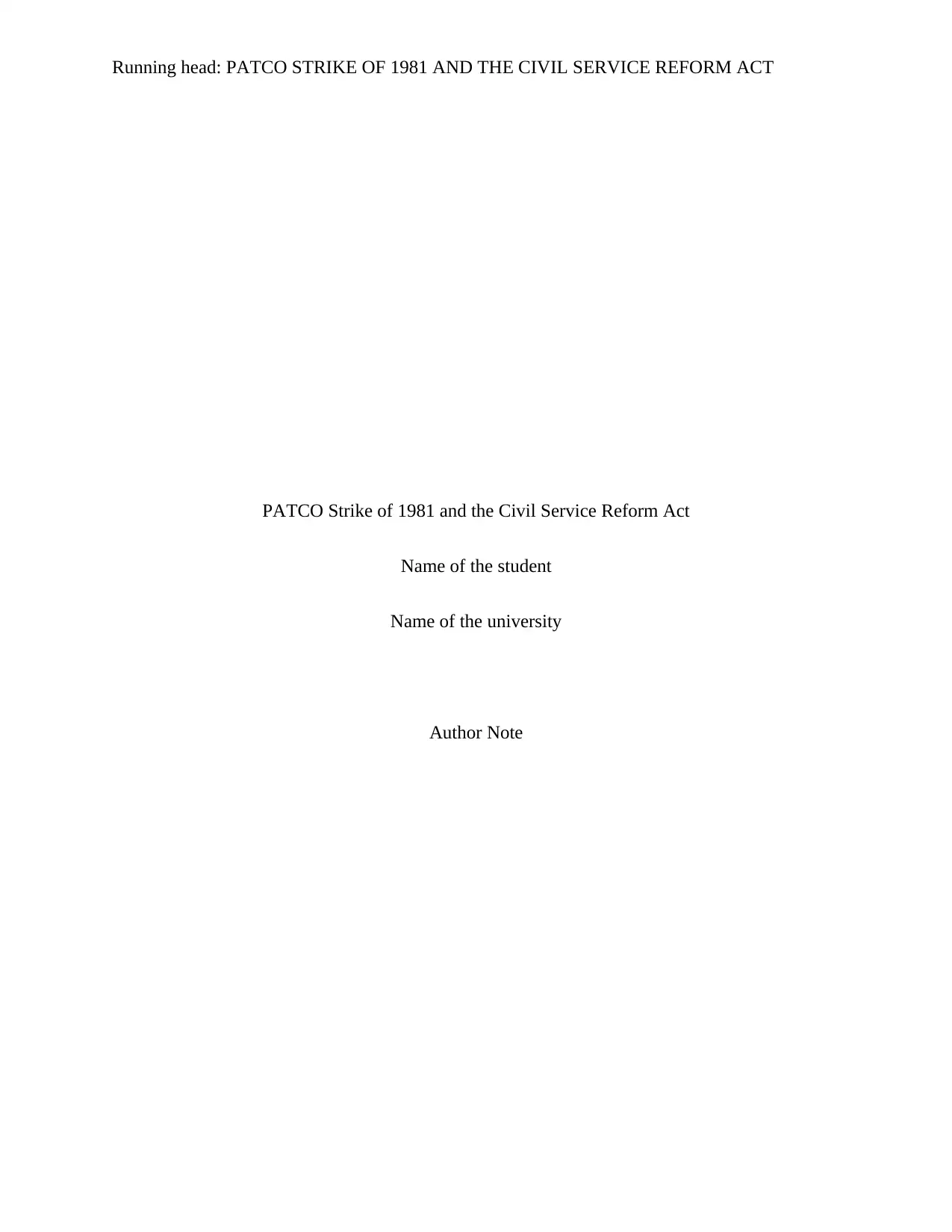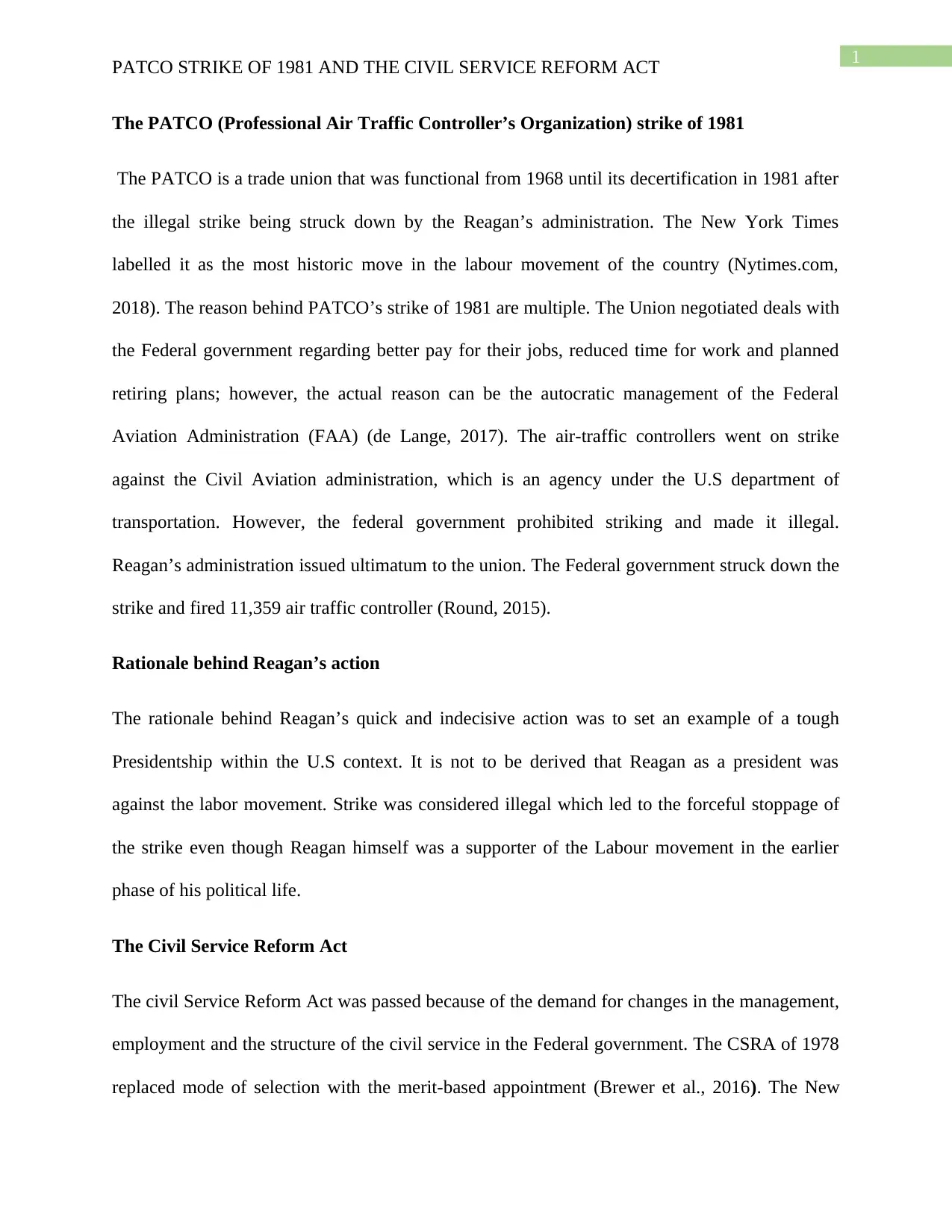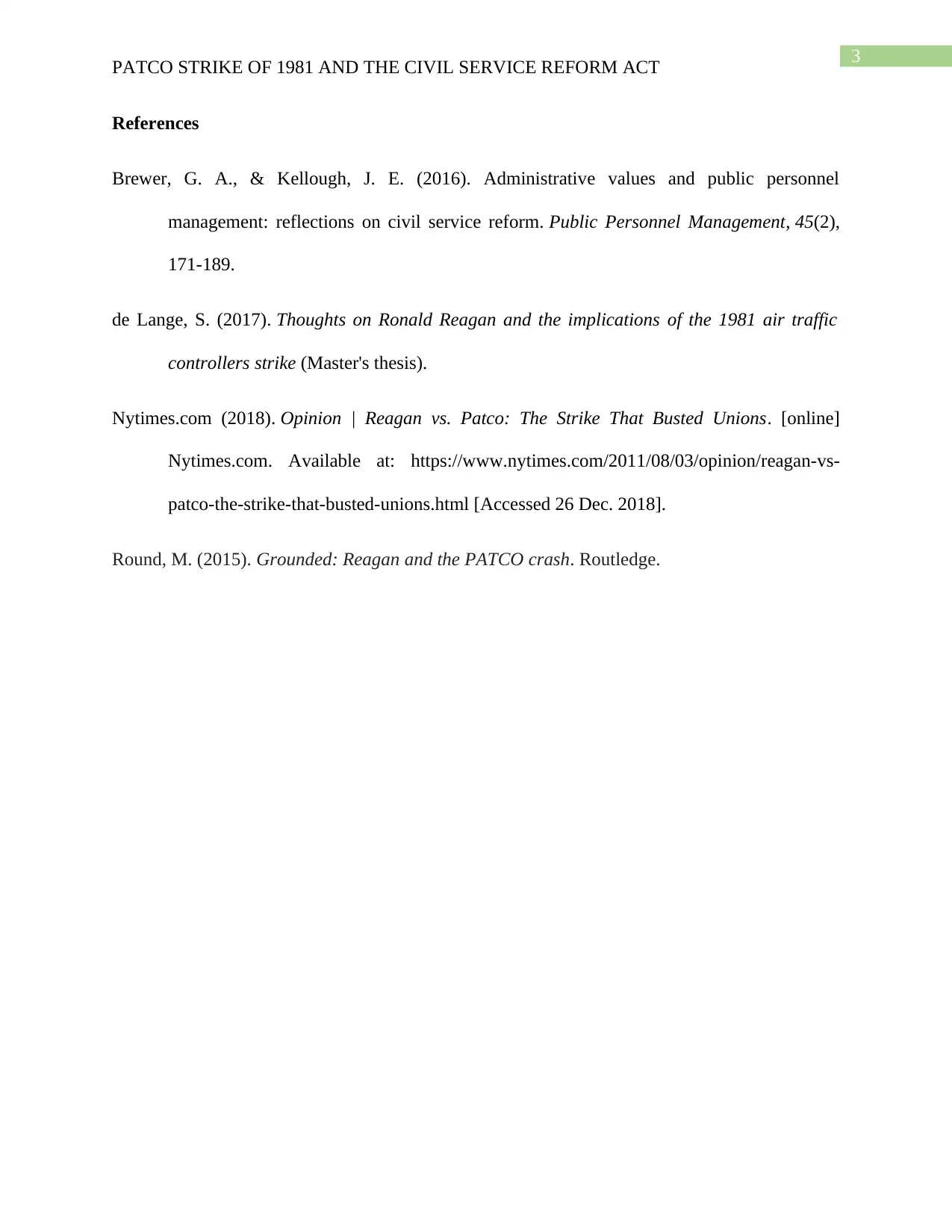PATCO Strike of 1981: Its Impact and the Civil Service Reform Act
VerifiedAdded on 2023/04/21
|4
|567
|488
Essay
AI Summary
This essay examines the 1981 PATCO (Professional Air Traffic Controller’s Organization) strike and its relationship to the Civil Service Reform Act. The PATCO strike, triggered by disputes over pay, working conditions, and FAA management, was met with a firm response from President Reagan, who viewed the strike as illegal and subsequently fired thousands of air traffic controllers. This action was seen as a landmark event in the labor movement. Simultaneously, the Civil Service Reform Act of 1978 aimed to modernize federal employment practices by replacing traditional selection methods with a merit-based system. The essay references the New York Times in describing the act as the most sweeping change since the reform act of 1883. The analysis explores the rationale behind Reagan's actions, the implications of the strike, and the broader context of civil service reform in the United States.
1 out of 4





![[object Object]](/_next/static/media/star-bottom.7253800d.svg)